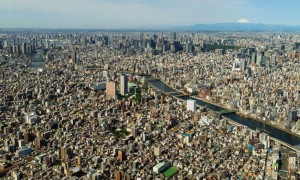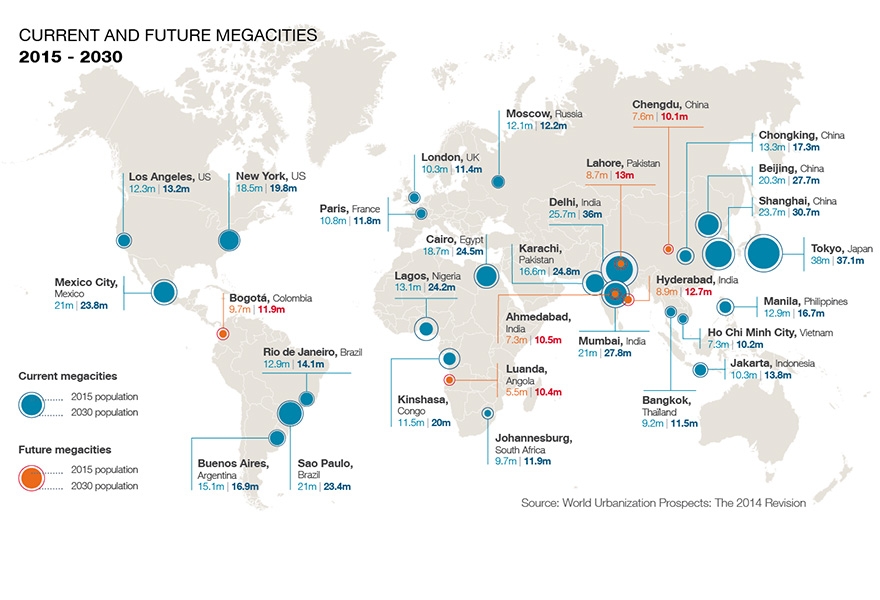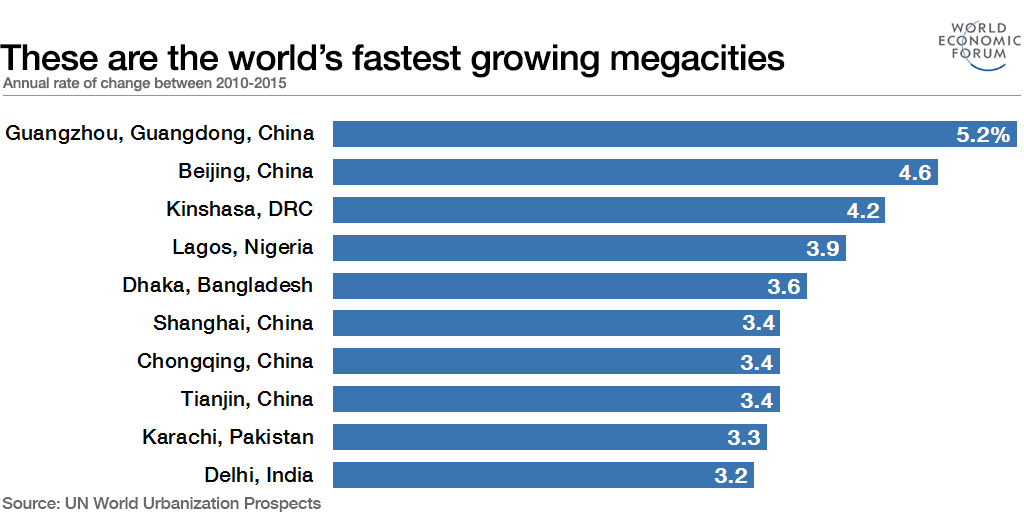Megacities and the Threat to Food Security
Jan 5th, 2017 | By admin | Category: Food and Hunger/AgricultureBy Suzanne York.
We live in an increasingly urbanized world. The growth of megacities – urban areas with a population of over 10 million – is a reflection of the rapid pace of urbanization in countries across the world.
In 1990, there were 10 megacities across the globe. By 2030, the number is expected to rise to 41, according to the UN.
Cities as Far as the Eye Can See
The World Economic Forum reports that the Chinese government is planning to create even bigger megacities, including combining nine cities in the Pearl River delta, thereby creating the massive megacity of JingJinJi. With a current population of over 130 million, merging the cities of Beijing, Tianjin and Hebei would be bigger than Japan by population, and larger than Uganda by area. Talk about mega.
A new study highlights threats to food security from growing megacities, as increasing urbanization wipes out cropland needed for agricultural production. The study, published in the Proceedings of the of the National Academy of Sciences, states that “about 80% of global cropland loss from urban expansion will take place in Asia and Africa. In both Asia and Africa, much of the cropland that will be lost is more than twice as productive as national averages.”
The authors note these urban areas are “often in places with high poverty rates and that are prone to systemic disruptions in the food system. For many of these countries, agriculture is a crucial economic sector in terms of income generation, percentage of total national gross domestic product (GDP), and employment source.”
Consider megacities in China. According to the study, “one-fourth of total global cropland loss will occur in China. Urban expansion in China is taking place in the country’s most productive farmland and over large areas. Therefore, urban expansion could pose a threat to domestic crop production.” This is one reason for Chinese interest in Africa.
Increasing Food Insecurity
The following paragraph from the Guardian should be a wake up call:
“A major worry surrounding the disappearance of this productive land is the impact it will have on staple crops such as maize, rice, soya beans, and wheat, which are cornerstones of global food security. Many of these crops occur in areas that will be consumed by urban spread in years to come. “Due to urbanisation in Nigeria, 17% of rice production and 12% of maize production will be hampered,” Creutzig says. “Egypt will lose more than 40% of its rice, and more than 60% of its maize.” In Africa, there will a 26% continental loss of wheat. Rice is forecast to suffer the most, with a 9% global decline, occurring predominantly in Asia where the bulk of this crop grows.”
Nigeria is projected to be the third most populous country in the world by 2050, with 400 million people. For Africa as a whole, more than half of the growth predicted between now and 2050 is expected on the African continent, where the number of people is set to double, from 1.2 billion to 2.4 billion.
The Wild Card of Climate Change
And what about the impacts of climate change on urbanization? Researchers with Penn State University, the University of North Carolina-Chapel Hill and the International Food Policy Research Institute studied the effects of climate change on human migration in South America. The study’s authors found that abnormally high and low temperatures increased migration, with especially strong effects on moves to urban areas.
We risk running out of land for humans, our soils are becoming depleted of essential nutrients and climate change will alter agriculture in varied and yet unknown ways.
The Anthropocene is Here
The World Economic Forum noted how “rapid and unplanned urbanization can lead to sub-standard living conditions, pollution and environmental destruction.” It’s a bit difficult to imagine nature existing, much less thriving, anywhere in an urbanized world unless we get a handle on stabilizing human population, ending poverty and adapting to a changing climate.
It’s disturbing to think that we will just continue to grow and consume at the risk of our own food security. Are we sure homo sapiens are the wise ones?
Suzanne York is Project Director of Transition Earth.



